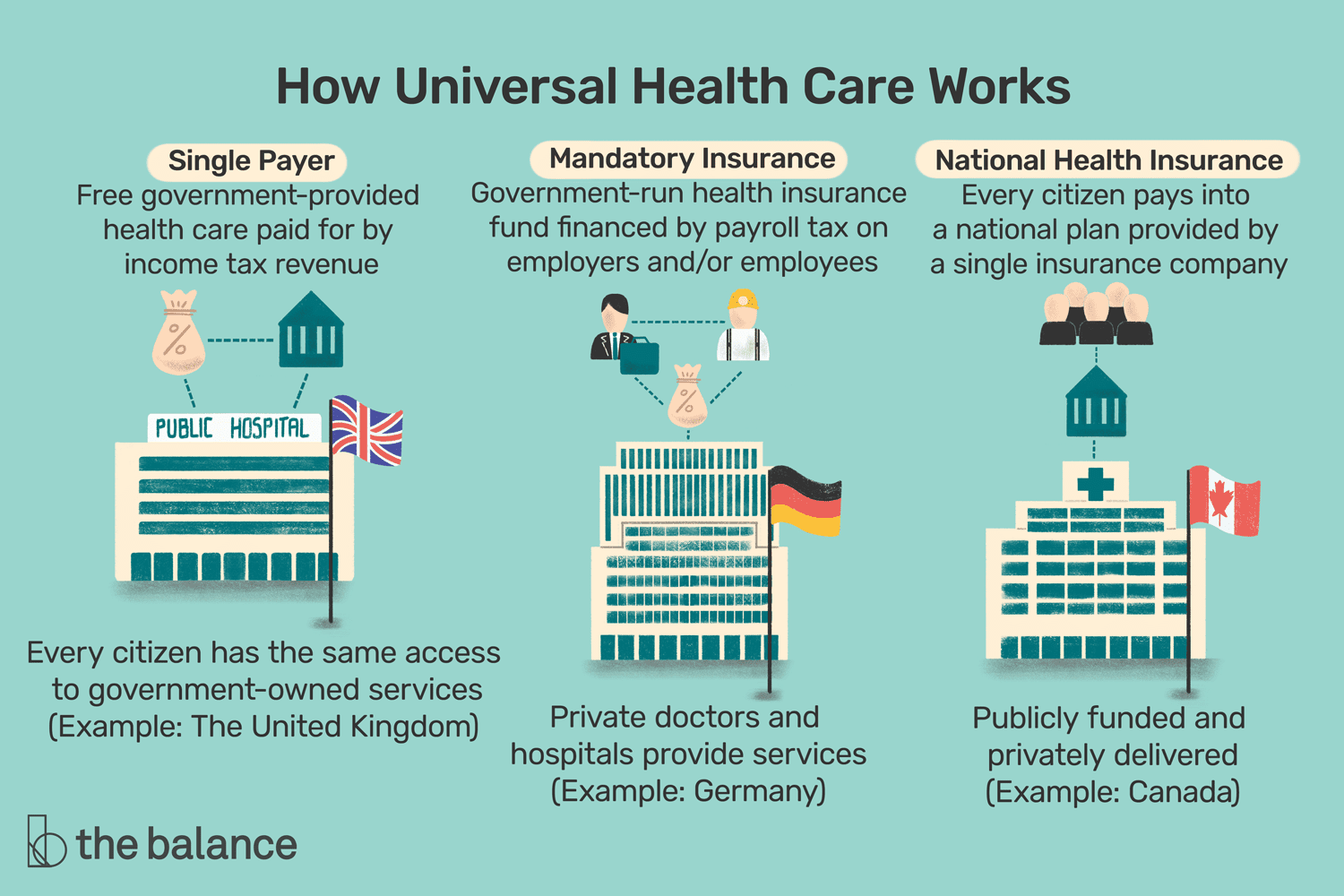Ahmedabad
(Head Office)Address : 506, 3rd EYE THREE (III), Opp. Induben Khakhrawala, Girish Cold Drink Cross Road, CG Road, Navrangpura, Ahmedabad, 380009.
Mobile : 8469231587 / 9586028957
Telephone : 079-40098991
E-mail: dics.upsc@gmail.com

Universal Health Care
What is UHC?
• The concept of UHC revolves around the idea that nobody should be deprived of quality health care for the lack of ability to pay. It has become a critical indicator for human equity, security and dignity.
• It has become a well-accepted objective of public policy around the world. The concept has gained prominence in number of countries such as Brazil, China, Sri Lanka and Thailand.
How can we achieve UHC?
• UHC typically relies on one or both of two basic approaches: public service and social insurance. In the first approach, healthcare is provided as a free public service. In the latter one, it allows for private as well as public provision of healthcare, but costs are borne by the social insurance funds, not the patient.
• Quite different from a private insurance market, it is the one where insurance is compulsory and universal, financed mainly from general taxation, and run by a single non-profit agency in the public interest.
• The basic principle is that everyone should be covered and insurance should be geared to the public interest rather than private profit.
About HOPS Framework:
• It stands for ‘Healthcare as an optional public service’.
• Under HOPS, everyone would have a legal right to receive free, quality health care in a public institution if they wish. It would not prevent anyone from seeking health care from the private sector at their own expense.
• But the public sector would guarantee decent health services to everyone as a matter of right, free of cost.
• Some Indian States are already doing so, such as in Kerala and Tamil Nadu, most illnesses can be satisfactorily treated in the public sector at little cost to the patient.
• If quality health care is available for free in the public sector, most patients will have little reason to go to the private sector.
• Although HOPS would not be as egalitarian as the national health insurance model initially, it would still be a big step toward UHC.
Challenges to achieving UHC:
• The absence of public health centres, dedicated to primary health care and preventive work, create the risks of patients rushing to expensive hospitals every other day thus making the whole system wasteful and expensive.
• Containing costs is a major challenge with social insurance, because patients and health-care providers have a joint interest in expensive care — getting better healthcare for one and earnings for the other.
• Another big challenge remains in identifying what services are to be universally provided to begin with and what level of financial protection is considered acceptable. Offering the same set of services to the entire population is not economically feasible and demands huge resource mobilisation.
• Another challenge with social insurance is to regulate private health-care providers. A crucial distinction needs to be made between for-profit and nonprofit providers.
Way Forward:
• In order to achieve UHC, it is vital that governments intervene in their country’s health financing system to support the poor and vulnerable. This requires establishing compulsory publicly governed health financing systems with a strong role for the state in raising funds fairly, pooling resources and purchasing services to meet population needs.
• A Right to Health Bill would be an invaluable affirmation of the State’s commitment to quality health care for all; it would empower patients and their families to demand quality services, helping to improve the system further.
• HOPS shall lay down certain health-care standards along with a credible method to revise these standards over time. Some useful elements are already available, such as the Indian Public Health Standards.

Address : 506, 3rd EYE THREE (III), Opp. Induben Khakhrawala, Girish Cold Drink Cross Road, CG Road, Navrangpura, Ahmedabad, 380009.
Mobile : 8469231587 / 9586028957
Telephone : 079-40098991
E-mail: dics.upsc@gmail.com
Address: A-306, The Landmark, Urjanagar-1, Opp. Spicy Street, Kudasan – Por Road, Kudasan, Gandhinagar – 382421
Mobile : 9723832444 / 9723932444
E-mail: dics.gnagar@gmail.com
Address: 2nd Floor, 9 Shivali Society, L&T Circle, opp. Ratri Bazar, Karelibaugh, Vadodara, 390018
Mobile : 9725692037 / 9725692054
E-mail: dics.vadodara@gmail.com
Address: 403, Raj Victoria, Opp. Pal Walkway, Near Galaxy Circle, Pal, Surat-394510
Mobile : 8401031583 / 8401031587
E-mail: dics.surat@gmail.com
Address: 303,305 K 158 Complex Above Magson, Sindhubhavan Road Ahmedabad-380059
Mobile : 9974751177 / 8469231587
E-mail: dicssbr@gmail.com
Address: 57/17, 2nd Floor, Old Rajinder Nagar Market, Bada Bazaar Marg, Delhi-60
Mobile : 9104830862 / 9104830865
E-mail: dics.newdelhi@gmail.com